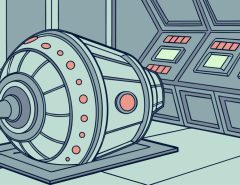Today’s world is heavily dependent on electricity to perform everyday tasks and responsibilities. The appliances in our home make everything easier and more comfortable, so it’s hard to imagine life without appliances like a fridge, washing machine, and TV.
Even though electricity brings a myriad of benefits to our lives, it can also become a severe hazard. Electric shocks and shortages can pose a significant risk if you don’t maintain your electrical system and operate the appliances safely. Below we share some of our best appliance safety tips.

Kelly Sikkema from Unsplash
Replace or Repair Damaged Electrical Cords
Damaged power cords are a serious electrical safety hazard for homes and can cause both fires and electrocution. All power and extension cords should be checked regularly for signs of cracking and fissures and then repaired or replaced as necessary. Mains cables must not be stapled in place or run under carpets and furniture. Cords under carpets pose a tripping hazard and can overheat, while furniture can crush cord insulation and damage wires.
Using extension cords regularly can mean you don’t have enough outlets to suit your needs. Have a qualified electrician who understands electrical safety regulations install additional outlets in rooms where you frequently use extension cords.
Gas Appliance Checks

PhotoMIX Company from Pexels
One of the most important ways to keep your home safe is to make sure that your natural gas appliances are checked and maintained to work safely and efficiently.
We use gas appliances on a regular daily basis when we heat our living spaces and when we cook. To be able to use our appliances without having to worry, there are specific gas safety rules you should always follow. If not handled properly, gas appliances that work incorrectly may lead to dangerous production and accumulation of carbon monoxide in homes and cause devastating fires.
Gas connections are an indispensable part of every household but problems with gas fittings tend to happen. Poor gas fittings can cause damage to your appliances and the worst part is that faulty gas fittings are difficult to detect right away. If you suspect faulty gas equipment such as meters, regulators, heating units, and appliances, you should hire a local gas fitter to find the cause and provide the best solution.
Unplug All Your Unused Appliances
One of the easiest appliance safety tips to remember is that when an appliance isn’t in use, it needs to be unplugged. This saves you power by reducing any phantom burn but it also protects these devices from overheating or power outages.
People keep forgetting to unplug unused appliances, but the new generation of smart plugs offers a solution that allows you to set power plans for each outlet.
Keep Appliances Away from Water
Water and electricity don’t go well together. To comply with electrical safety regulations, keeping electrical equipment dry and away from the water can prevent damage to appliances and protect against personal injury and electric shock.
When working with electrical appliances, your hands need to be kept dry. Keeping electric appliances away from wet areas like sinks, showers and bathtubs reduces the risk of water and electricity coming into contact.
Give Your Appliances Space
Poor air circulation can cause your appliances to overheat, shut down and become a fire hazard. Ensure proper air circulation and don’t run electrical equipment in enclosed cabinets. The best precautionary measure is to place flammable items far away from all appliances. Pay particular attention to your gas or electric dryer, as these must be located at least one foot from the wall to operate safely.
Keep Used and Unused Cords Safe and Tidy

Electrical safety rules don’t just apply to power cords when in use. Cords must also be stored safely to prevent damage. Keep them at a distance from children and pets who are likely to chew on them or play with them. Don’t wrap your cords tightly around wires as this may stretch the cord or cause overheating. A cord should not rest on a hot surface as it can cause damage to the cord’s insulation and wires.
Always Follow the Appliances’ Instructions
We would say that reading the instruction manual is the top appliance safety tip. Understanding how to use appliances safely improves both device performance and your safety. If any appliance gives you even a small electric shock, don’t use it until a professional electrician checks it for problems.
Final Thoughts
As homeowners, we use multiple appliances to perform ordinary daily tasks. While home appliances make our lives much easier, many hazards can happen when they’re improperly used. For this reason, we shared some of the top safety tips that can protect the lifespan of your appliances but also keep you and your home safe.




